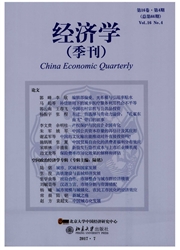

 中文摘要:
中文摘要:
程序化、自动化交易降低了监视市况的成本,促成投资者大量且快速撤单。在台湾股票市场.三分之一以上的撤单发生在60秒之内。针对台湾股市投资者快速撤单行为决定因素的研究发现,市场波动率、投资者参与度和积极委托单的不确定性增加时,三种类型投资者(岛内机构投资者、岛外机构投资者和散户)快速撤单的比例均有显著的提升;但是,机构投资者和散户的快速撤单行为对流动性变化的反应不同:流动性匮乏时,机构投资者倾向于减少快速撤单,而散户则相反。通过检验快速撤单对市场流动性的影响,可以发现,快速撤单整体上有助于改善市场流动性。这是因为平均而言投资者快速撤单后倾向于提交更积极的委托单。进一步的研究还发现,由于不同类型的投资者在资金实力、持股偏好和交易策略等方面存在差异,上述结论在不同类型投资者和不同市值的公司中间发生了分化。
 英文摘要:
英文摘要:
Algorithmic trading and automated trading reduce investors' monitoring costs, thus facilitating the cancellation of a large quantity of orders shortly after submission. In Taiwan's stock market, more than one third of orders are cancelled within 60 seconds. The study of the determinants of investors' fleeting orders shows that an increase in volatility, investors' participation rates and uncertainty about the arrival rates of impatient marketable orders are associated with higher levels of fleeting orders for three classes of investors, namely domestic institutions, foreign institutions, and retail investors. However, institutional investors react differently than retail investors when market liquidity deteriorates, with the former tending to decrease fleeting orders and the latter usually increasing fleeting orders. In our investigation of the impact of fleeting orders on market liquidity, we find that fleeting orders, on the whole, contribute to improving market liquidity because investors in Taiwan's stock market, on average, would resubmit a more impatient order after caneeling an order. A further study finds that since investors in different classes differ in capital flows, preferences for stock characteristics, trading strategies and so on, the aforementioned conclusion is polarized across investor classes and firm size.
 同期刊论文项目
同期刊论文项目
 同项目期刊论文
同项目期刊论文
 期刊信息
期刊信息
